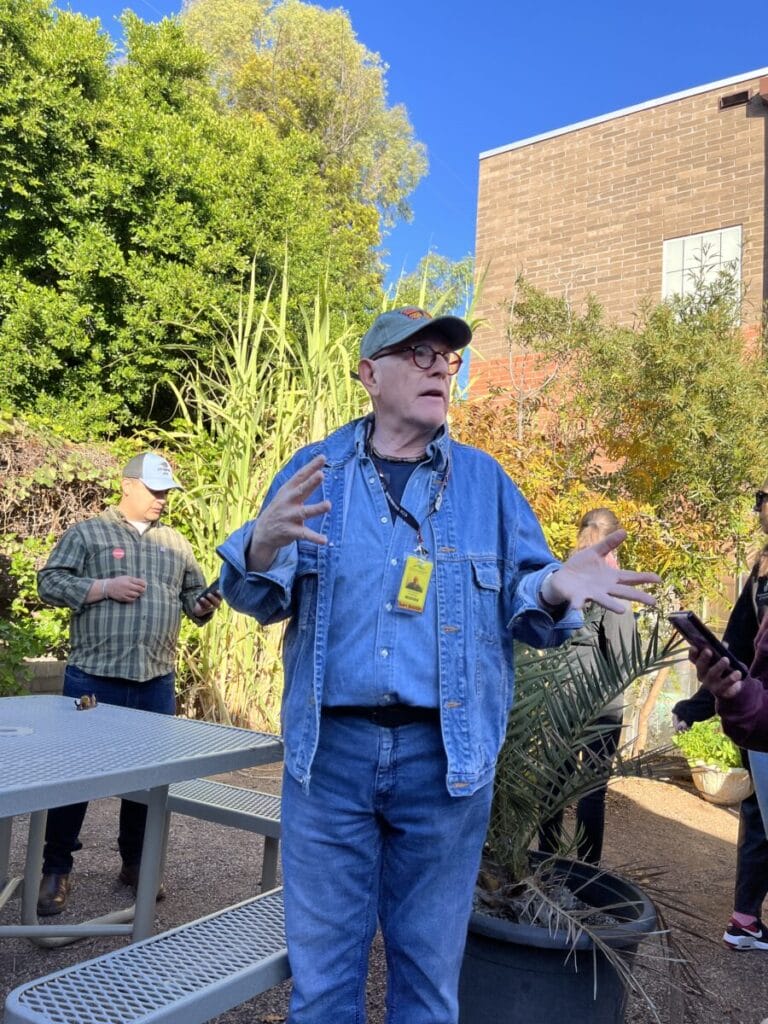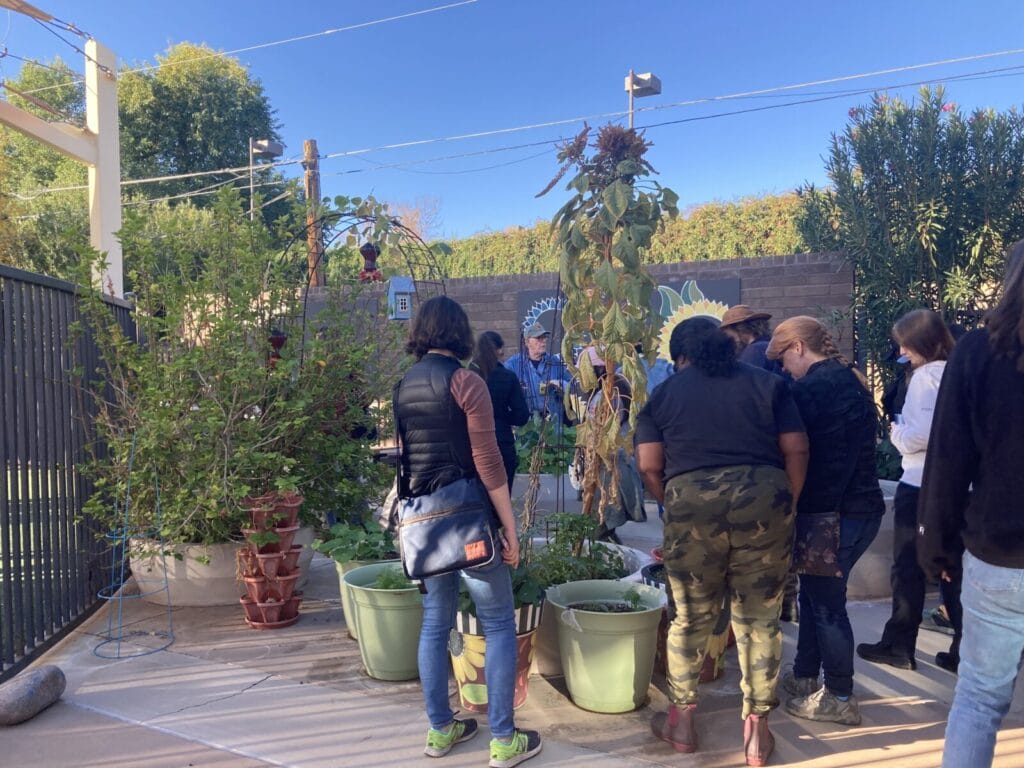By Alexandra Rivas, ASU sustainable food systems graduate student

Nestled within the heart of Echo Canyon School in Scottsdale, AZ, there exists a vibrant oasis of greenery and learning—the school garden. On a recent visit to this unique educational sanctuary, our cohort had the pleasure of immersing ourselves in the beauty of nature, witnessing firsthand the importance of passing down knowledge and cocreating a space with our youth. Lou Rodarte, the garden teacher named over a decade ago by the students as “Mr. Pikle,” gave us an engaging tour of the school garden and his amazing work with the students at Echo Canyon.
The school garden wasn’t just a designated area, but rather it was sprinkled throughout the whole school. We couldn’t walk a few feet without stumbling upon a micro-garden. From succulents to flowers to edible plants, Echo Canyon’s gardens have the ability to show future generations that they are a part of nature. The space, co-created and managed by wife Ann Colleary and husband Mr. Pikle in collaboration with the Echo Canyon students, embodies the importance of intergenerational learning and teaching.
As soon as we arrived, we were uniquely greeted by a tortoise sanctuary filled with lush native trees. Then we entered the school and sat in a classroom while we anxiously waited for the official start of the tour. Mr. Pikle walked us out of the building, and we made our first stop in front of a garden between two playgrounds. A student eagerly came up to us and told us about the spiders and caterpillars he finds there. Mr. Pikle continued to talk about the garden space and mentioned that students like the one we had just met learned how to be careful with our tiny bug relatives by working in the garden.

Mr. Pikle proceeded to lead us through a gated area where he had multiple pots with plants. We stopped at an edible plant named nasturtium, and he told us that we could pluck a leaf and eat it. I was a bit uncertain at first, but after I saw my peers try it, I took a bite and my mouth was filled with a vibrant peppery taste. Mr. Pikle stated that his role is not only to teach students how to garden but to be curious and explore the natural world around them. The garden at Echo Canyon School is not merely a collection of plants; it serves as a catalyst for environmental awareness. Students are also actively involved in maintaining a composting system to reduce waste and learn valuable lessons about resource conservation.
Mr. Pikle explained that the garden provides a serene escape from the hustle and bustle of traditional classrooms. Students and teachers alike find solace in the peaceful ambiance, fostering a sense of connection with nature. The presence of benches and shaded areas encourages moments of quiet reflection, offering a respite for both academic and personal contemplation. Students can learn about themselves and the world around them, encouraging them to continue to ask questions about where their food comes from.

In conclusion, our cohort’s visit to Echo Canyon School’s garden left us inspired and rejuvenated. The symbiotic relationship between nature and education is beautifully exemplified in this green haven, where students not only cultivate plants but also nurture their curiosity. As we navigate an increasingly digital world, such initiatives serve as reminders of the timeless lessons that can be learned from the soil beneath our feet. Knowledge cultivated in school gardens has the potential to shape our future consumers. Our students deserve to know where our food comes from, who tended to it, and who picked and prepared it.
This blog is part of a series from the Swette Center's annual Arizona Food and Farm Immersion, a required course in their two graduate programs. Students tour the state, meeting with farmers, ranchers, entrepreneurs, government staff, and non-profit leaders.